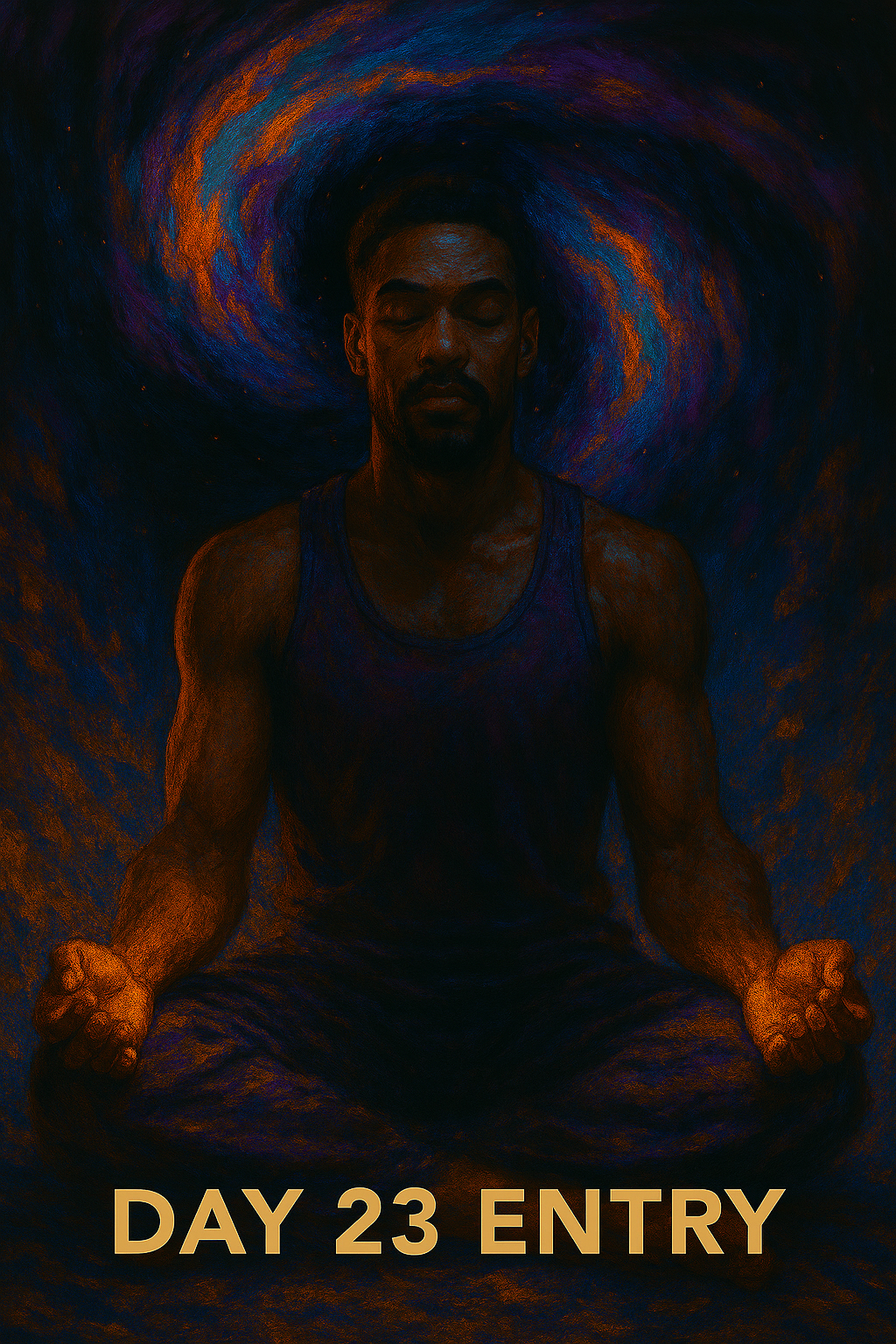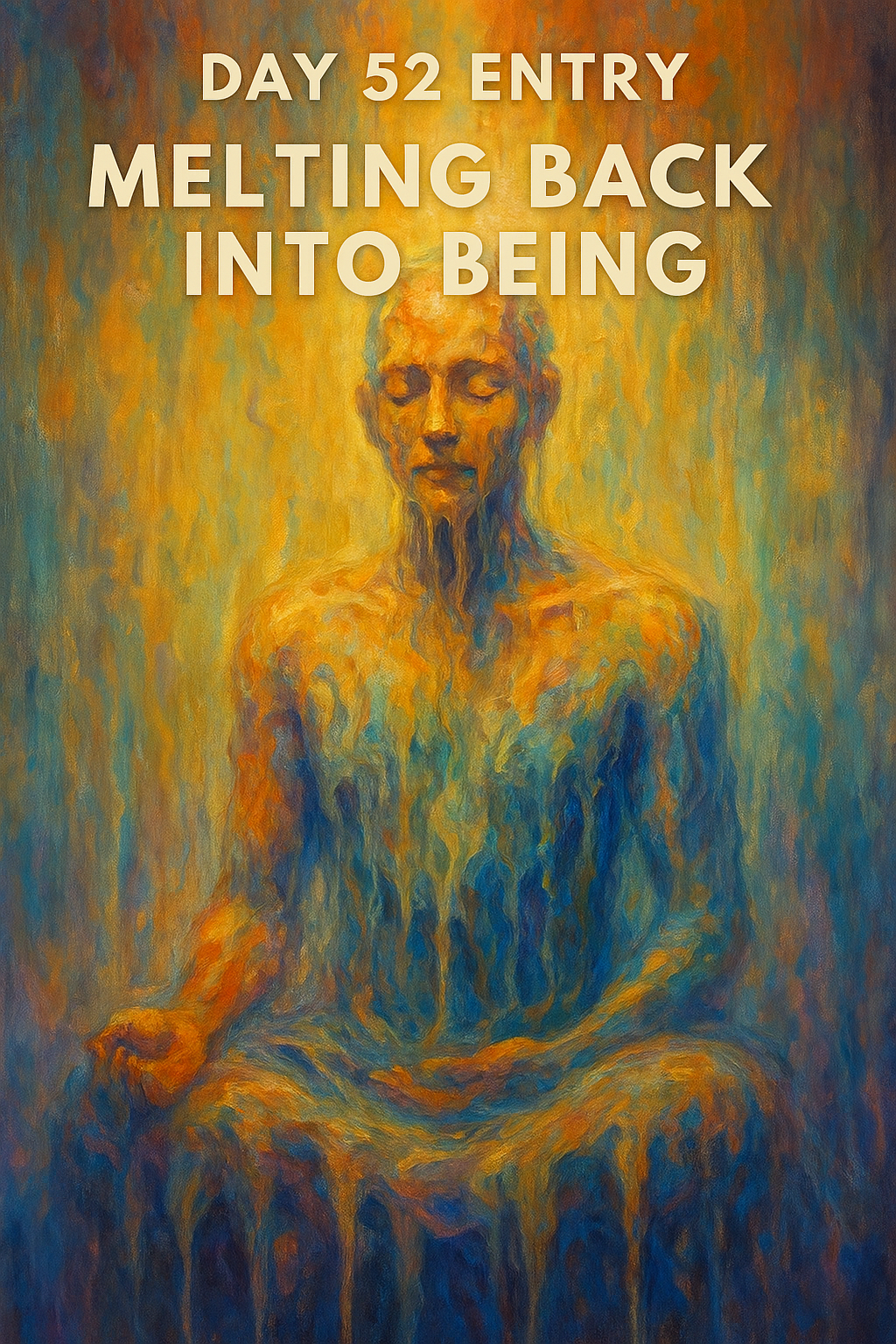Day 23 Entry

Walking Meditation: When Flow Becomes Baseline
This morning I rediscovered something. Not on a cushion, but while walking. The city smelled alive — food, asphalt, a trace of leaves. Birds cut through the noise. My body was open, cock hard, senses wide. I wasn’t thinking about being “in flow.” I was just there.
Then thought hit: the metro closes soon. My eyes widened, body got hot, the old survival spark. Stress wasn’t wrong — it pushed me forward, and I did catch the last train. But here’s the difference: I wasn’t the panic itself. I was the one who sensed it, used it, and kept walking.
When the body braces, it forgets. Smells vanish. Breath shortens. Nose dries. Sounds stab through. Cock softens. That’s stress on autopilot, thought taking the driver’s seat. But when flow is baseline, the body remembers its nature. Panic becomes a small ripple on a wide lake. You sense it, act, and return to openness.
That’s the shift I’m training for. Not a fragile flow that breaks at the first noise, but a steady one that carries through every situation. Arousal and clarity alive at the same time. Conversation with women, handling business, catching trains — all inside the same field.
When flow becomes baseline, nature takes over. And then nothing feels like performance. It’s just life, raw and swift, moving through me.
Afternoon Sit
After lunch, I dropped deeper than usual. The center of gravity shifted out of my head — scanning felt more natural, blackness opened, and there was spaciousness instead of strain. My eyes weren’t frowning; that area loosened, which made it easier to let myself sink into the void. I even forgot where I was mid-scan, like awareness itself wanted to carry the work automatically. Less manual effort, more trust.
Evening Observation
At dinner, close to kitchen closing, I noticed a new response. Instead of rigidly holding my space and pretending rules didn’t apply, I thought of the worker. I asked when they closed, packed the rest of my food, thanked her, and left. That moment showed me how “armor” had once made me act strangely defensive.
I still felt a rush — a nervous sense of needing to hurry so I wouldn’t be “too much.” But this time I could see it, not be ruled by it. With self-compassion, that rush can become awareness instead of bracing. I can move from armor to presence — not less strong, but more free.
Second Sit
Later, I sat again. I wasn’t much into it — energy was low, focus wasn’t strong. But I stayed with it for a bit before getting up. Even without depth, the act of showing up matters. It keeps the thread alive, like keeping an instrument in tune on a day you don’t feel like playing.


